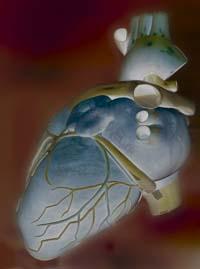The main stem cell of the heart

The team of researcher Kenneth Chien of Massachusetts General Hospital has discovered the type of stem cell that produces all major types of heart cells. From these stem cells come muscle cells of the heart (cardiomyocytes), smooth muscle cells and blood vessel cells, which the body uses to make the whole heart.
These stem cells only exist in the fetal phase. Cells activate a certain gene that produces a protein called Isl1. This is the characteristic of these stem cells, unique containing Isl1. Scientists knew that in the mouse there was a similar protein, but those of the Chien team have found that of humans.
Once located, this cell has been isolated from embryos. To do this, they have identified the cells that contain the protein Isl1 by fluorescent markers that have been able to collect and experience them.
Chien says that at the moment these cells cannot be used to treat people with heart problems. The clinical pathway is long and it is also not possible to channel the development of these stem cells to provide a heart tissue.
Many other experts say that it is a breakthrough in stem cell research, but that the use of these new stem cells is not a therapeutic solution.
This idea has been revealed, especially in the case of the heart, by the difficulty of stem cell treatment and by the high expectations generated by any progress. The other stem cells, especially those extracted from the bone marrow, which are currently being investigated, do not serve to produce cardiomyocytes. They can serve to activate other stem cells (called paracrine effect) but not to regenerate the heart muscle. In addition, treatment after a heart is very complex, for example, the added stem cells too quickly die. The situation is complicated and experts are unclear whether the new stem cells found by the Massachusetts team will help overcome these problems.
However, the news is good for those who research congenital heart diseases, as new stem cells seem appropriate to develop concrete models of heart development.





